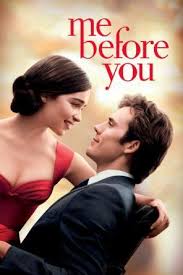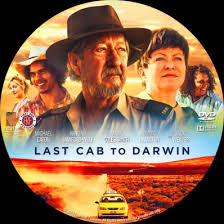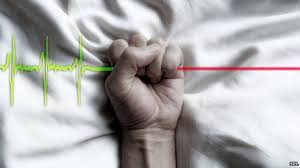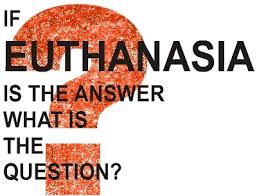Euthanasia
Sunday 30 Apr 2017
Euthanasia is a topical conversation at present with many Governments looking to find acceptable ways of legalising a person’s right to create their own death. This is seen in the context of their life becoming too cruel or painful to keep going, especially if death is near anyway. It is a compelling argument to hear a loved one tell of the suffering witnessed when a friend or family member has lived through a prolonged death that was not wanted by the person dying.
 Popular culture has spawned many films that illustrate the intellectual and emotional complexity surrounding Euthanasia. “Me Before You” is an apt title for this heart wrenching film to showcase a handsome young, sports loving man who becomes paralysed from the neck down and is only able to live his life with assistance. It should be said that this man is smart, knowledgeable and has the wherewith all to continue his lucrative business. He has friendly medical care that is first rate. He is wealthy and has the best of suitable accommodation. He has loving parents who would gladly look after him and they do have the means to continue that legacy after their death. He is a personable, sensitive and loving man who derives great pleasure in making those around him happy. All this! but he cannot stand to be as he is and wants to die. The film is set around a deal made with his parents to let him go the Dignitas Centre in Switzerland to die; if he still feels this way after six months. Of course the narrative of the film showed him being offered all that was possible to offer, with a view to having him loving and living life well, but all to no avail. As the title implies the young man chose “me before you”.
Popular culture has spawned many films that illustrate the intellectual and emotional complexity surrounding Euthanasia. “Me Before You” is an apt title for this heart wrenching film to showcase a handsome young, sports loving man who becomes paralysed from the neck down and is only able to live his life with assistance. It should be said that this man is smart, knowledgeable and has the wherewith all to continue his lucrative business. He has friendly medical care that is first rate. He is wealthy and has the best of suitable accommodation. He has loving parents who would gladly look after him and they do have the means to continue that legacy after their death. He is a personable, sensitive and loving man who derives great pleasure in making those around him happy. All this! but he cannot stand to be as he is and wants to die. The film is set around a deal made with his parents to let him go the Dignitas Centre in Switzerland to die; if he still feels this way after six months. Of course the narrative of the film showed him being offered all that was possible to offer, with a view to having him loving and living life well, but all to no avail. As the title implies the young man chose “me before you”.
 Another movie exploring the sensitivities on this subject is “The Last Cab to Darwin”. In this story a man (Rex) who has lived his whole life in Broken Hill Australia, having never left the town much, and having never seen the Ocean finds he is dying with cancer. He has about three months to live. He hears about the law on euthanasia changing in the Northern Territory and a Doctor who is prepared to be the first to allow the new law to operate. Rex lets her know he is coming. He has loving friends that he socialises with, but mostly it is in that teasing Australian way that speaks opposite to what is meant. Rex is also in the same type of teasing relationship with a black woman neighbour. Their love is unspoken in the community but everyone knows. The story focuses on his determination to drive to Darwin and end it all because he has no family and feels he has a need to do it alone. His journey and the story are about the emotion in his relationships finally over riding what he thinks. He ends up back in Broken Hill to die naturally and truthfully in the arms of the woman he loves and his friends who do care for him.
Another movie exploring the sensitivities on this subject is “The Last Cab to Darwin”. In this story a man (Rex) who has lived his whole life in Broken Hill Australia, having never left the town much, and having never seen the Ocean finds he is dying with cancer. He has about three months to live. He hears about the law on euthanasia changing in the Northern Territory and a Doctor who is prepared to be the first to allow the new law to operate. Rex lets her know he is coming. He has loving friends that he socialises with, but mostly it is in that teasing Australian way that speaks opposite to what is meant. Rex is also in the same type of teasing relationship with a black woman neighbour. Their love is unspoken in the community but everyone knows. The story focuses on his determination to drive to Darwin and end it all because he has no family and feels he has a need to do it alone. His journey and the story are about the emotion in his relationships finally over riding what he thinks. He ends up back in Broken Hill to die naturally and truthfully in the arms of the woman he loves and his friends who do care for him.
Leaving for the moment the compounding confusion that comes about when another person or a Doctor is asked to do the work required for euthanasia, we can see that, the first film is about an individual’s unquestionable right to do what he wants with his life --- no matter what his community might think is best for him. Rex’s journey in the second film sees him meeting new friends that reflect a clarity allowing him to see that killing himself “privately” is not as easy as he thought He returns back into relationship with his life community and “partner” for succour! Which way of seeing things is the right way? Are both scenarios right? For me a question that was asked on the ABC’s “Q&A” program does shed light on this question.
In the program questioner Racheal William’s asked, “Why do we long to be in control of every aspect of our lives”? Does taking control of our bodies through euthanasia bring us as individual’s empowerment or does it make our society less kind and less full of humility”? “Is death not the most humbling experience, because it is the one thing we cannot control”? The question was directed to anti-euthanasia panellist Margaret Somerville, who in my opinion, was swamped by the pro euthanasia panel and audience on the night, but for me, she did bring some clarity to the question. She is Professor of Bioethics at the University of Notre Dame Australia, and she said --- “Because we try to control death and the way we die, it necessarily turns death into a problem --- when this happens we can no longer be with the mystery that death is”.
 This brings up a bigger question. The question of will, and having “will” over our consciousness! Very few sentient beings have a self-reflective view of their consciousness. Humanity along with perhaps some higher order species and beings are fairly unique in this area. Most animals have no say in when or how they are to die. In fact our “food” animals are by and large completely disrespected in this area. We use our “will” totally over their dominion and I believe this does affect our consciousness very negatively.
This brings up a bigger question. The question of will, and having “will” over our consciousness! Very few sentient beings have a self-reflective view of their consciousness. Humanity along with perhaps some higher order species and beings are fairly unique in this area. Most animals have no say in when or how they are to die. In fact our “food” animals are by and large completely disrespected in this area. We use our “will” totally over their dominion and I believe this does affect our consciousness very negatively.
Self-reflection does give us the ability to investigate whether this “will” is relative or absolute in our lives. In recent past blogs written, I have pointed to the nature of our being as paradoxical in that we are part of the whole, connected and contributing to the external Universe. At the same time we are also operating autonomously and creating ourselves as individuals along with all the other individual beings. There is a relative will operating for all of us that is conditioning us to dependently arise and finish in the Universe, (to be born and die) but when we practice to relax to an absolute state of truth, “will” is cancelled out with unification. This happens in the very heart of the present moment. From this realisation we see that “will” arises from the conditions that come out of the paradox of me as an individual and the world which is external to me. The unification of all these conditions describes Absolute Truth and shows that “will” is conditional in our consciousness and is relative.
 Our relative “will” is used differently, by different people and beings for different reasons. At one point in our history it was deemed a sin for a person to kill themselves. The church ruled this question with an iron fist and the repercussions of suicide were deemed to follow an entire family of the person who suicided. Whole families were beggared in perpetuity. The body of the suicide was often displayed and sometimes drawn and quartered. This did not stop suicide though, but eventually a more enlightened view started to prevail up to today where euthanasia may even be seen as relatively heroic.
Our relative “will” is used differently, by different people and beings for different reasons. At one point in our history it was deemed a sin for a person to kill themselves. The church ruled this question with an iron fist and the repercussions of suicide were deemed to follow an entire family of the person who suicided. Whole families were beggared in perpetuity. The body of the suicide was often displayed and sometimes drawn and quartered. This did not stop suicide though, but eventually a more enlightened view started to prevail up to today where euthanasia may even be seen as relatively heroic.
 Our consciousness is very sensitive and any “will” applied to it will condition it. We can see this today in the families of people who have suicided. Family members are in a way infected by the suicide and do have a higher chance than others of following their kin. I believe that we see a similar situation in soldiers who experience war and even Veterinarians who put down a lot of animals, killing themselves in higher numbers than in the general population. We cannot have an intention without it affecting our consciousness, so it is wise to have good intentions. People asked to assist in euthanasia; Doctors and families also run these risks if their intentions run in any way counter to Compassion, Loving Kindness, Joy and Equanimity for the patient.
Our consciousness is very sensitive and any “will” applied to it will condition it. We can see this today in the families of people who have suicided. Family members are in a way infected by the suicide and do have a higher chance than others of following their kin. I believe that we see a similar situation in soldiers who experience war and even Veterinarians who put down a lot of animals, killing themselves in higher numbers than in the general population. We cannot have an intention without it affecting our consciousness, so it is wise to have good intentions. People asked to assist in euthanasia; Doctors and families also run these risks if their intentions run in any way counter to Compassion, Loving Kindness, Joy and Equanimity for the patient.
And so it goes, all sorts of subconscious intention can be at play without us even realising. Questions of motivations for both the dying person and their families! There is no doubt that many who come to euthanasia, come with compassion for themselves and their families, but then there are others who feel a burden or a nuisance. Physical pain management should not be an issue today but mental pain is sometimes uncertain, especially if you feel like you should not be here. Knowing where our motivation is coming from is sometimes difficult. It is hard enough judging motivation when you are free of constraints but when laws come into play to give a structure for euthanasia it may become impossible for someone to truly know if they are free enough to know if what they are doing is right.
The answer given to the Q&A question is very salutary. Death is a mystery and being open to it with clear eyed self-reflection is a boon to seeing deep into nature of our existence. To be there at our death, open and without fear is spiritually very compelling. Having said that, to blame someone or to try and invoke guilt onto someone who chooses Euthanasia, is just plain wrong.






